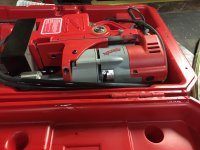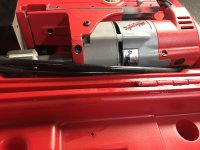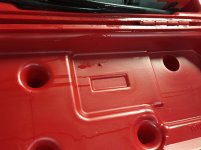tcscooters
Member
- Joined
- Feb 7, 2018
- Messages
- 2
I had been a Festool Fan, about a $6000 fan, until now. I am a weekend warrior woodworker. Mostly furniture. Anyway I purchased a TS 55 REQ for Xmas of 2014. I use it to cut sheet goods into a manageable size, usually 4 x 4. I have used it about 6 time over the past 4 years. I do mean six, if I said 10 I would be lying. I had not used it for about 8 months and went to use it the other week and it was dead. No start, and oil had dripped out into the systainer and saw base. Sent to Festool repair and was told the problem is that I do not use it enough and if I used more often the saw would be fine. After getting it back from Festool and $123.00 later; the saw now grinds loud and vibrates when you start it up, smooths out and quiets down after a few seconds of running. Now I have to sent it back and pay more money. Festool should have repaired it free after seeing the tool and realizing the part is a defect and that the grease should not be turning to oil. Is Festool saying that their tools are not meant for the hobbyist??? Or are they saying that their tools have a shelf life. Even a $99 20 year old Dewalt saw doesn't turn the grease to oil and still runs smoothly when you need it. Maybe not as smooth as a new Festool



